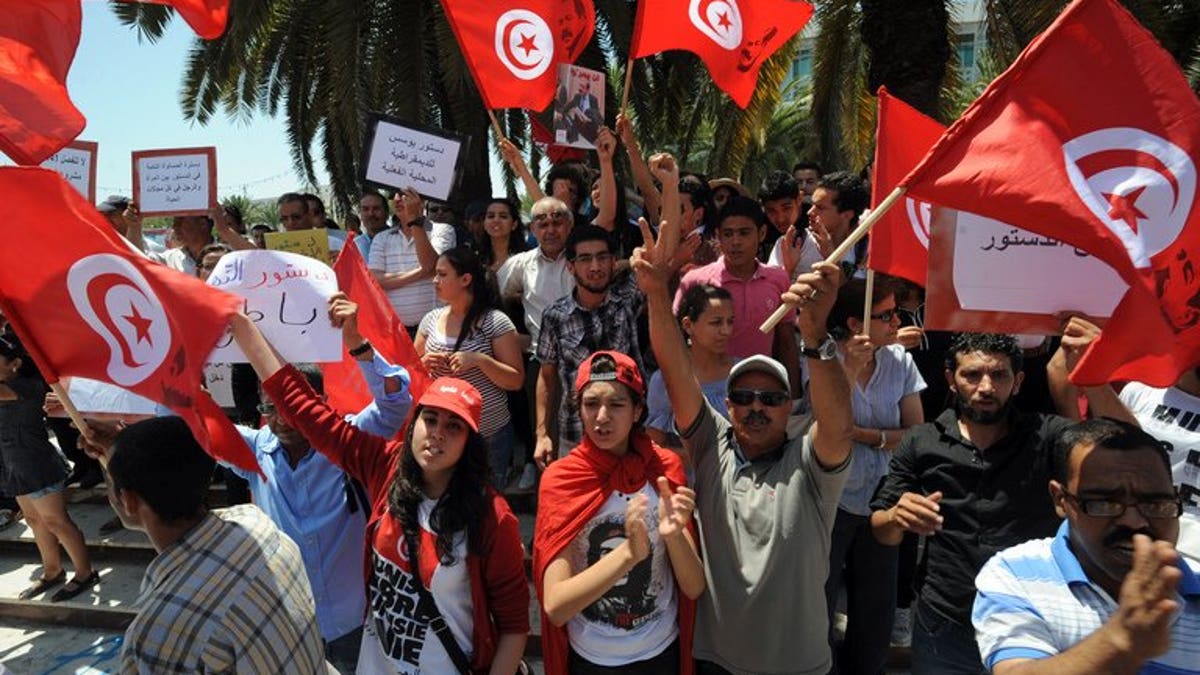
Tunisians shout slogans against the ruling Ennahda Party during a protest in front of the Constituent Assembly on July 1, 2013 in Tunis. Troubled French automaker PSA Peugeot Citroen on Tuesday opened a new plant in central China, vowing to raise its share of the world's biggest car market. (AFP)
TUNIS (AFP) – Troubled French automaker PSA Peugeot Citroen on Tuesday opened a new plant in central China, vowing to raise its share of the world's biggest car market.
After more than 18 months of work on drafting a ne post-Arab Spring charter, the assembly "missed a rendez-vous with history," the main French-language daily La Presse announced on its front page.
With the finalisation of the draft text being endlessly pushed back in the quest for a compromise, beyond the initial deadline of October 2012, the "consensus has hit a dead end," it said.
"We have ended up at loggerheads, instead of with a constitution agreed by consensus," the paper thundered, adding that during Monday's session it saw only "egos and horse-trading."
Le Temps, another Tunisian daily, said that during the long-awaited debate "all hell broke loose" between members of the secular opposition, who by their heckling drowned out the head of the drafting committee, Habib Kheder, and some within the ruling Islamist party Ennahda who insulted their critics.
"This first day of discussions was lead by a dialogue of the deaf," said the paper, seeing in it "a difficult prelude for the (adoption of) the constitution."
The first parliamentary debate on the draft constitution was disrupted by opposition MPs who accuse Kheder of introducing controversial articles into the text in a discretionary manner.
Sections of civil society and the opposition have raised concerns that the text does not sufficiently guarantee basic liberties and the independence of the judiciary, and that it is not clear enough on gender equality.
But a relatively wide consensus appears to have been forged among key figures within the ruling coalition, including the president and prime minister.
The debate resumed on Tuesday morning and could last several days, with 170 MPs having asked to speak.
The new constitution requires approval by a two-thirds majority in the 217 seat assembly and must be adopted before a timetable can be drawn up for fresh elections, which Prime Minister Ali Larayedh has promised to hold before the end of 2013.
Adopting the charter is seen as key to restoring stability in Tunisia and helping overcome the political crises, social unrest and violent attacks by radical Islamist groups that have rocked the country since the revolution that overthrew former strongman Zine El Abidine Ben Ali in January 2011.
